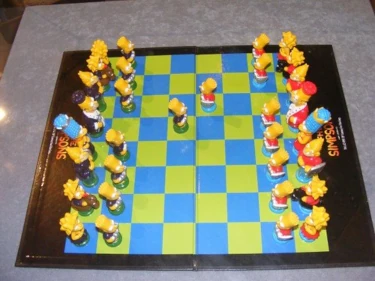
Does Chess Help Children with ADHD?
You want to find out if playing chess can help your child with ADHD. I’ve written this article to answer that question and give you my take on whether it can.
Chess is mentally stimulating
There’s no denying that playing chess is mentally stimulating and provides some much needed mental exercise. You’ll never hear me argue that, in this day and age, it is not good for the mind. Playing chess improves memory, concentration, and problem solving ability, which all go hand in hand with having a healthy mind.
It also stimulates the brain and the rest of the body, allowing the mind to run at its optimal state. It was actually shown in one study that when you play a board game that stimulates the brain, you do better at performing other tasks that need to be accomplished. For example, when playing Monopoly your eyes are pulled toward the board, and your mind wanders and searches for what it needs to do next. When you’re sitting there trying to find a house, you’re not fully concentrating on the task at hand.
Chess activates the brain
The more you can activate your brain, the more ability you have to achieve success. Chess can help you achieve success. It’s a really fun, strategic game that helps develop cognitive abilities.
Chess improves children’s attention span
As I mentioned before, it can help improve children’s attention span and memory. It can also keep children from getting bored quickly and will keep them interested in the game. It’s easy to take yourself out of the game when you’re working, but if you play a lot of chess, you won’t have to.
One thing that you should be aware of is that chess is not a “game” of chance. It does not come down to luck, so there’s no room for chance in a chess game. Players who win most games are often the ones who spent a lot of time thinking about how to win the game, and their minds are loaded with strategies to consider.
Chess helps children to better in school
In another study, it was shown that children who played a lot of chess did much better in school. They had better reading scores and scored better on tests of verbal ability. That’s because chess improves cognitive abilities.
The bottom line is that we shouldn’t focus too much on the outside of the child, but our own mindset. It’s easy to let ourselves get swept up in our thoughts and daydream. We can change that by really considering what is going on inside of our own mind.
Ask yourself whether you are still in a place where you’re thinking about your problems as well as your children. Is your mind really set up to deal with the challenges your children bring forth?
If you find yourself saying, “Oh, those kids must have ADHD, they’re so difficult to handle.” You’re not doing yourself any favors. If you find yourself thinking this, then your child has ADHD and you need to make sure you’re thinking about them first.
If you’re saying, “Why should I try to think about how they feel? My kid is just like me, so it would be pointless.” Then you might be dealing with stress.
If you’re an ADHD parent, chess help may be right around the corner. Don’t lose focus on what’s best for your child.